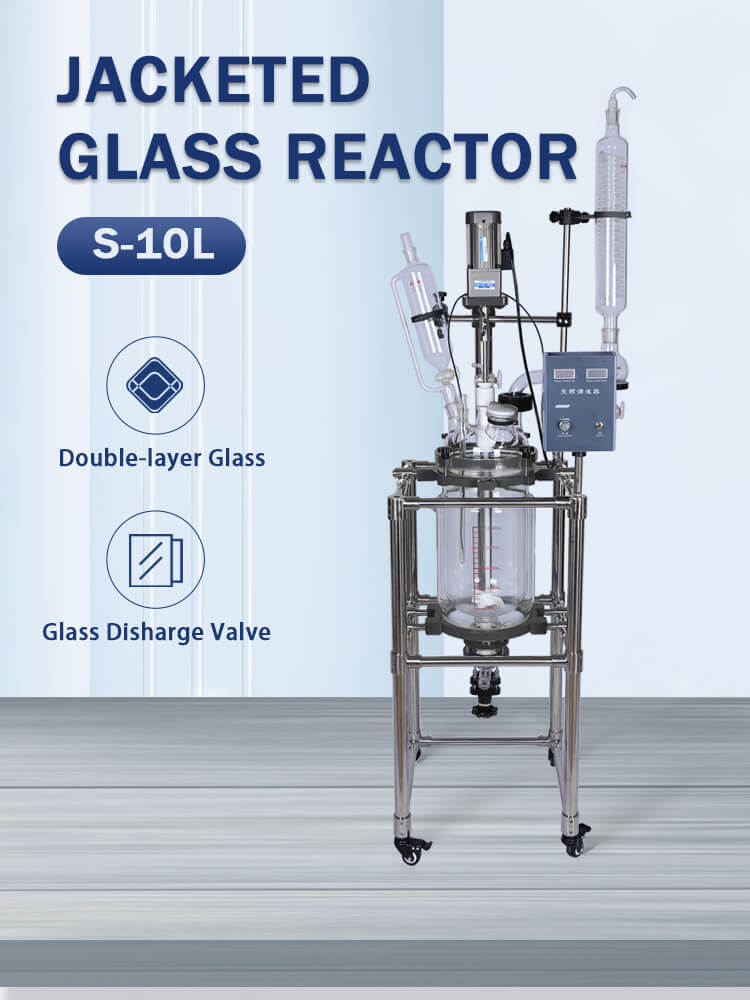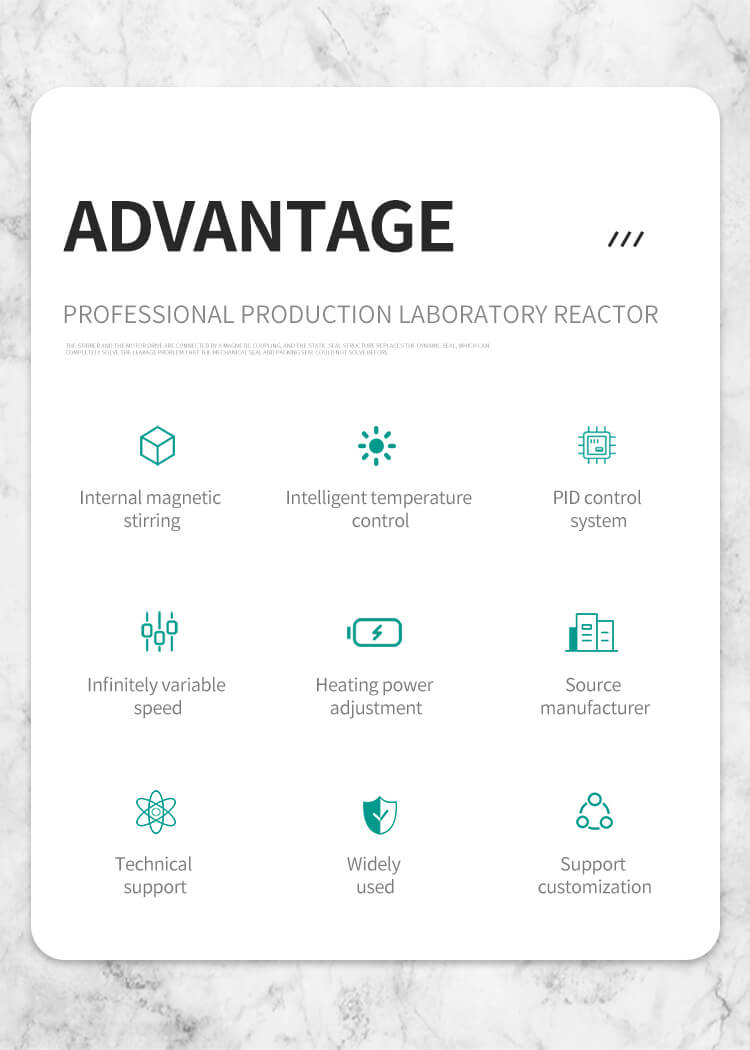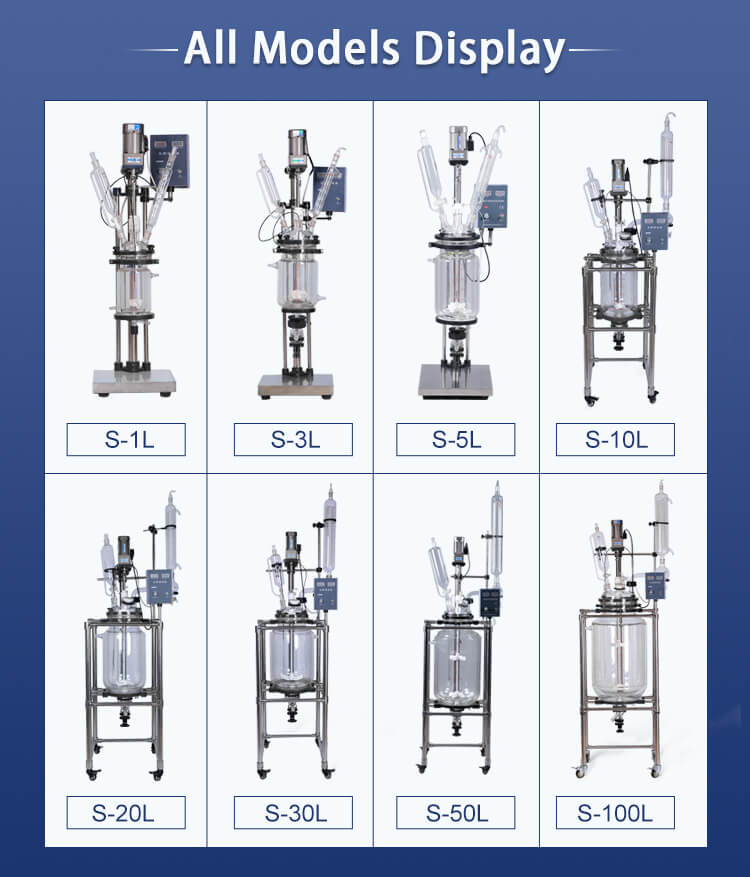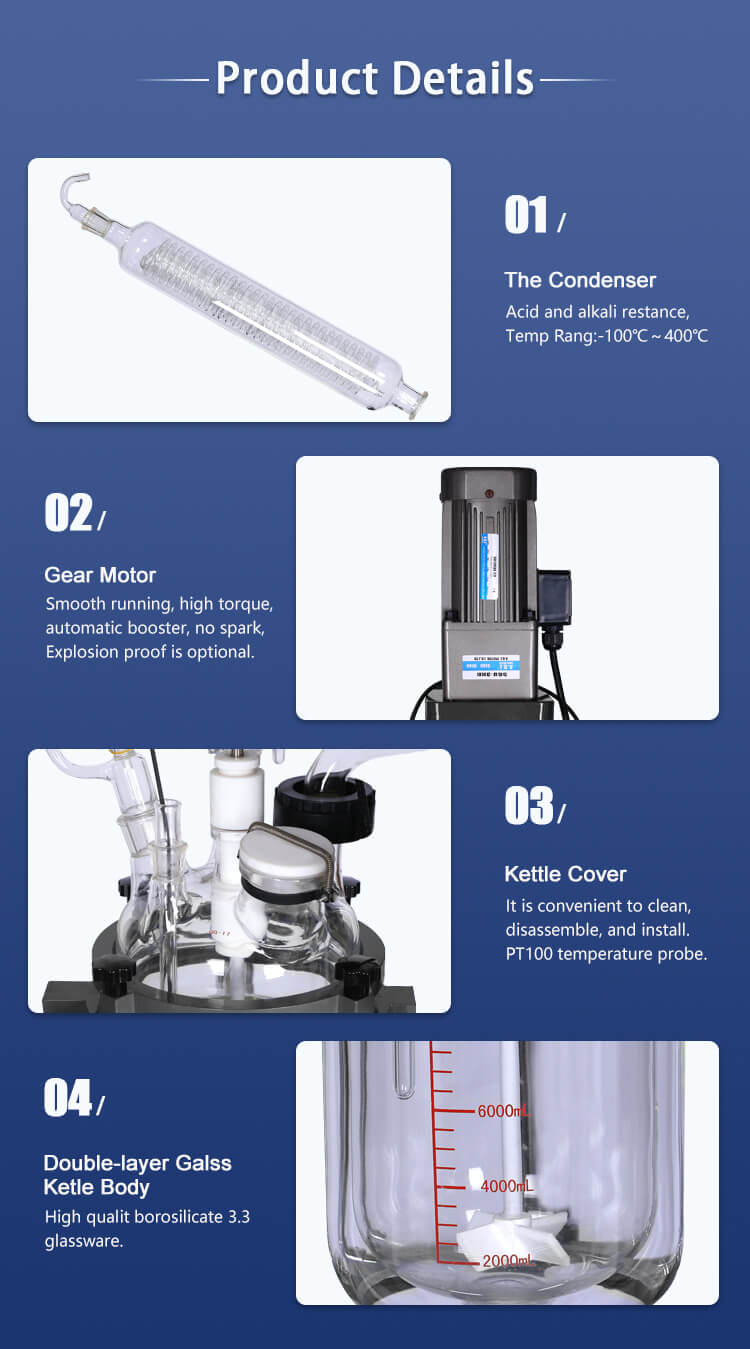In the realm of science and technology, advancements are constantly being made to improve our understanding of the world and enhance our capabilities. One such innovation that has revolutionized chemical reactions is the borosilicate glass reactor. This remarkable piece of equipment allows scientists to perform experiments with greater precision and efficiency.

What is a Borosilicate Glass Reactor?
A borosilicate glass reactor is a vessel designed to facilitate chemical reactions by providing a controlled environment for them to take place. Unlike traditional reactors made of metal or other materials, borosilicate glass reactors offer unique features that make them exceptionally valuable in scientific research and industrial applications.
Exceptional Heat Resistance
One of the main advantages of borosilicate glass reactors is their exceptional heat resistance. The glass used in these reactors is specially formulated to withstand high temperatures without cracking or shattering. This property allows scientists to perform reactions at elevated temperatures without compromising the integrity of the reactor.

Superior Chemical Inertness
Borosilicate glass is renowned for its superior chemical inertness. It has a low coefficient of thermal expansion, which means it is less likely to react with the substances being processed inside the reactor. This property ensures that the reactions taking place are not influenced by the reactor material, enabling more accurate and reliable results.

Transparency and Visibility
The transparency of borosilicate glass reactors is another key advantage. Unlike metal reactors, which obscure the view of the reaction, glass reactors allow scientists to observe the process in real-time. This visibility enables them to monitor changes, identify potential issues, and make adjustments as necessary, leading to improved control and outcomes.
Flexibility and Adaptability
Borosilicate glass reactors come in various shapes and sizes, allowing researchers to select the most suitable design for their specific needs. Additionally, these reactors can be easily customized with additional features such as ports, baffles, or reflux condensers to accommodate different experimental requirements. This flexibility makes borosilicate glass reactors highly versatile and adaptable.
Applications of Borosilicate Glass Reactors
The applications of borosilicate glass reactors are diverse and span across various industries. In pharmaceutical and chemical research, these reactors are commonly used for synthesis, crystallization, distillation, and other essential processes. They are also utilized in the production of flavors, fragrances, and dyes, as well as in environmental analysis and quality control.
Borosilicate glass reactors have also found their place in the world of nanotechnology, where precise control of reaction conditions is vital. The ability to observe and manipulate nanoscale reactions is crucial for advancing nanomaterials research and development.

Conclusion
The borosilicate glass reactor has undoubtedly become a game changer in the field of chemical reactions. Its exceptional heat resistance, superior chemical inertness, transparency, and adaptability allow scientists and engineers to conduct experiments with greater accuracy and efficiency. As research and technology continue to advance, we can expect the borosilicate glass reactor to remain a cornerstone of scientific progress.





